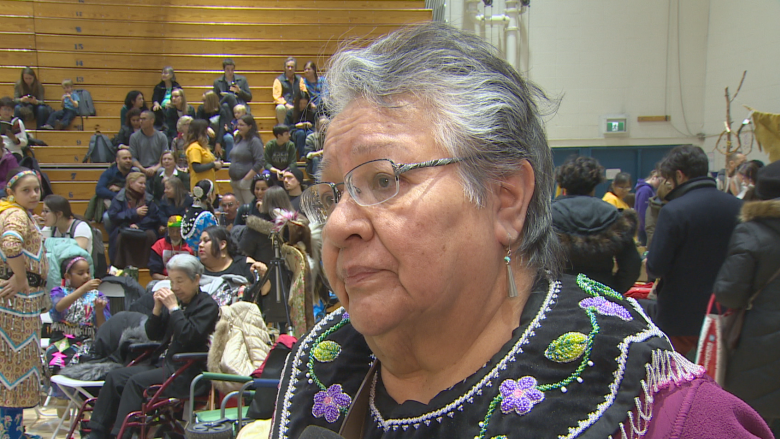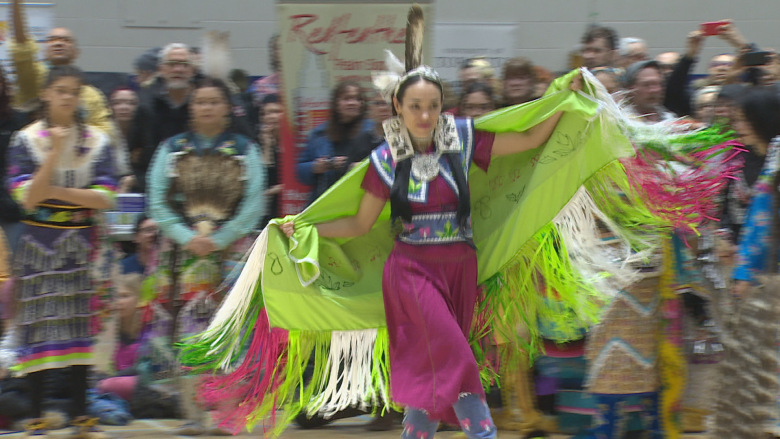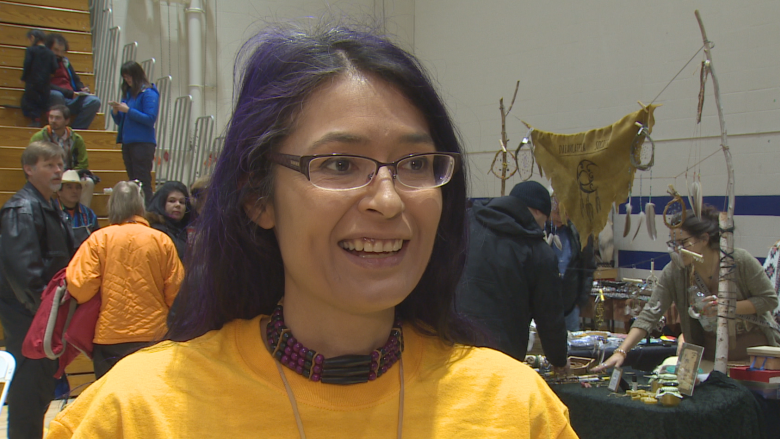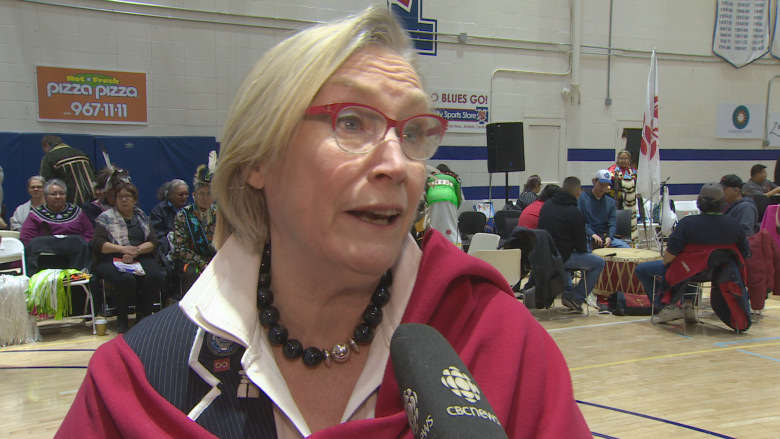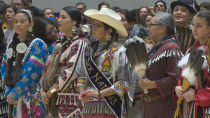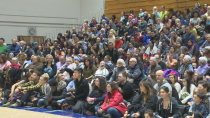First U of T powwow in 20 years shines spotlight on Indigenous culture
When Eileen Antone came to the University of Toronto in the early 90s, she knew only one other Indigenous student.
"There was nothing here when I was here," she said.
"My mantra became, 'Where are the aboriginal students? Where are the aboriginal faculty? Where are the aboriginal staff?"
After years of working for a strong Indigenous community at the university, Antone said it meant a lot to see a 500-person powwow in the school gymnasium on Saturday.
"That's what my goal was — to be able to see as I see today, Aboriginal students here at the University of Toronto," she said.
"It's been a long time, but it's always pushing, pushing, pushing, to make sure we can have a place for the students who are coming."
First time in two decades
Saturday marked the first powwow at the university in at least 20 years.
The Indigenous Studies Student Union organized the free event, which featured dancing, singing, drumming, food, and workshops. The intention was to educate people about Indigenous traditions, while also celebrating past and present students.
"I think it's important that we bring everyone together and share our culture," said finance coordinator Julie Blair, describing the powwow as a gathering and a celebration.
"We're all here to welcome each other and be together in a good way."
University responds to TRC
Following the 2014 federal Truth and Reconciliation Report, the University of Toronto released its own report in January. The response makes several recommendations, including having more dedicated Indigenous spaces and encouraging the hiring of more Indigenous employees.
Blair said this powwow had been in the works long before the response was released. However, she said, there's been a lot more "buzz and awareness" on campus about Indigenous issues since the TRC report came out.
Federal minister attends
Indigenous Affairs Minister Carolyn Bennett was also at the powwow. As a U of T alumna, she called the event "fantastic."
"We never had anything that really taught us about, not only this history of Indigenous people in our country, but the presence of Indigenous people right now," she said.
Bennett said having a secure personal cultural identity is key to Indigenous students' success.
She also said it's also important for non-Indigenous people to recognize and learn about the large Indigenous population in Toronto, which she called "nearly invisible."


